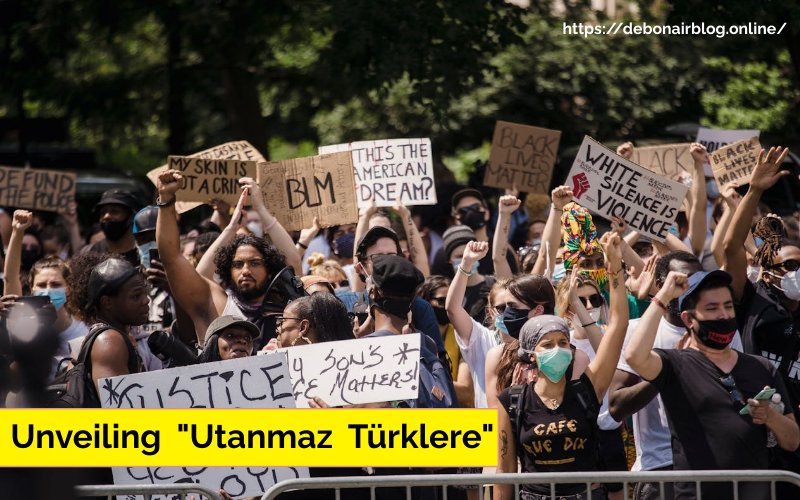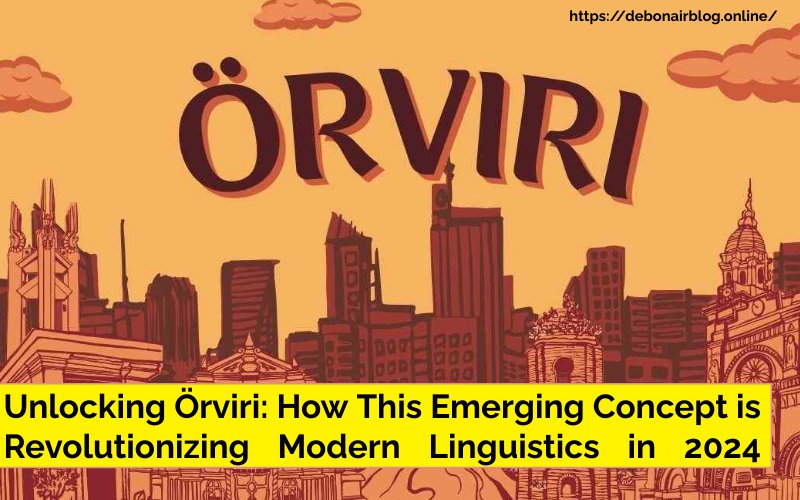
Unveiling “Utanmaz Türklere”: Cultural Insights and Significance in 2024
Table of Contents
In the vibrant realm of Turkish culture, few phrases spark as much intrigue and debate as “utanmaz türklere.” Translated literally as “shameless Turks,” this term encapsulates a myriad of meanings and cultural implications that resonate deeply within Turkish society.
As we navigate through 2024, it becomes increasingly crucial to explore the cultural significance, historical context, and evolving perceptions surrounding “utanmaz türklere.”
This article aims to provide a comprehensive understanding of this term, shedding light on its relevance in contemporary Turkish discourse.
The Historical Context of “Utanmaz Türklere”
To fully grasp the meaning of “utanmaz türklere,” we must first delve into its historical roots. The phrase has its origins in a society where honor and shame play pivotal roles in shaping individual behavior and social interactions.
Historically, being labeled as “utanmaz” was a serious accusation, suggesting a blatant disregard for societal norms and values.
In the Ottoman Empire, where strict social hierarchies and moral codes prevailed, the term was often used to chastise those who deviated from expected behaviors. This historical context is essential for understanding how the phrase has evolved over time, reflecting the changing dynamics of Turkish culture.
The Evolution of Meaning in Contemporary Society
As Turkey has undergone significant political, social, and cultural transformations, so too has the meaning of “utanmaz türklere.” In contemporary society, the term has shifted from a strictly negative connotation to a more nuanced understanding.
While it can still carry derogatory implications, especially among conservative circles, younger generations have begun to embrace it as a form of rebellion against outdated norms.
This evolution signifies a broader cultural shift, where traditional values are increasingly challenged by modern influences. The rise of social media and the globalization of culture have contributed to this transformation, allowing individuals to express themselves more freely and question societal expectations.
Generational Perspectives: A Divide in Interpretation

The perception of “utanmaz türklere” varies significantly across different generations in Turkey. For older generations, the term may evoke feelings of shame and disapproval, as it is often associated with behaviors that defy traditional values.
In contrast, younger individuals may view it as a badge of honor, symbolizing their willingness to break free from societal constraints.This generational divide highlights the ongoing cultural exploration within Turkey.
Younger Turks, influenced by global trends and ideas, are redefining what it means to be “Turkish” in a modern context. They are more likely to embrace individualism and personal expression, challenging the rigid definitions that have historically governed Turkish identity.
The Cultural Significance of “Utanmaz Türklere”
Understanding the cultural significance of “utanmaz türklere” involves examining its implications for Turkish identity and societal norms. The term serves as a mirror reflecting the tensions between tradition and modernity, conformity and individuality.
It encapsulates the struggles faced by individuals who find themselves at the crossroads of cultural expectations and personal desires.In many ways, “utanmaz türklere” has become a rallying cry for those advocating for greater acceptance of diverse lifestyles and expressions within Turkish society.
It challenges the notion that one must adhere strictly to traditional values to be considered a “true” Turk. This cultural significance underscores the importance of dialogue and understanding in navigating the complexities of identity in a rapidly changing world.
Media Representation and Its Role in Shaping Perceptions
Media plays a pivotal role in shaping public perceptions of “utanmaz türklere.” Television shows, films, and social media platforms often depict characters or situations that challenge traditional values, using the term to highlight societal contradictions.
These representations can reinforce stereotypes but also provide a platform for more nuanced discussions about cultural identity.For instance, popular Turkish dramas often feature characters who embody the spirit of “utanmaz türklere,” portraying them as bold, unapologetic individuals who defy societal expectations.
This representation can resonate with younger audiences, encouraging them to embrace their identities and challenge the status quo.Moreover, social media has become a powerful tool for individuals to express their thoughts and experiences related to “utanmaz türklere.”
Hashtags and online communities allow for the sharing of personal stories, fostering a sense of solidarity among those who identify with the term. This digital landscape has transformed the way cultural narratives are constructed and disseminated, amplifying voices that were once marginalized.
The Psychological Impact of Being Labeled “Utanmaz”
Being labeled as “utanmaz türklere” can have profound psychological effects on individuals. For some, the term can evoke feelings of shame, isolation, and anxiety, particularly if they come from conservative backgrounds that uphold strict moral codes.
The pressure to conform to societal expectations can lead to internal conflict and a sense of alienation.Conversely, others may choose to reclaim the label, using it as a form of empowerment. By embracing the term, they assert their right to live authentically and challenge societal norms.
This duality illustrates the complex relationship between language, identity, and self-perception in Turkish culture.Understanding these psychological dimensions is crucial for fostering empathy and support within communities. It is essential to create safe spaces where individuals can express themselves without fear of judgment or ostracism.
Educational Approaches to Cultural Sensitivity
Education plays a vital role in addressing the implications of terms like “utanmaz türklere.” By promoting cultural sensitivity and awareness, educational institutions can help mitigate the negative impacts of such labels.
Programs that encourage open dialogue about stereotypes and cultural values are essential for fostering a more inclusive society.Integrating discussions about cultural significance into educational curricula can empower students to critically engage with their identities and the societal norms that shape them.
This approach not only benefits individuals but also contributes to a more cohesive and understanding society.Additionally, encouraging students to explore diverse perspectives can foster empathy and appreciation for the complexities of cultural identity.
By understanding the historical and cultural contexts of terms like “utanmaz türklere,” individuals can develop a more nuanced understanding of their own identities and the identities of others.
The Role of Activism in Challenging Stereotypes

Activism has emerged as a powerful force in challenging the stereotypes associated with “utanmaz türklere.” Various movements and organizations within Turkey advocate for LGBTQ+ rights, gender equality, and freedom of expression, often using the term to highlight the struggles faced by marginalized communities.
These activists work tirelessly to dismantle the stigma surrounding “utanmaz türklere” and promote acceptance of diverse identities. Through protests, social media campaigns, and community outreach, they aim to create a more inclusive society where individuals can live authentically without fear of judgment.
The impact of activism is evident in the growing visibility of diverse voices within Turkish culture. As more individuals speak out against discrimination and advocate for their rights, the narrative surrounding “utanmaz türklere” continues to evolve, fostering greater understanding and acceptance.
The Future of “Utanmaz Türklere” in Turkish Culture
Looking ahead, the usage of “utanmaz türklere” is likely to continue evolving as societal attitudes change. Predictions suggest a gradual shift towards more inclusive language, reflecting a growing awareness of the need for empathy and understanding in cultural discussions.
As Turkey navigates the complexities of modernization and globalization, terms like “utanmaz türklere” will remain significant in shaping cultural narratives. The ongoing dialogue surrounding this phrase will play a crucial role in defining Turkish identity in the years to come.
Moreover, as younger generations continue to challenge traditional norms and embrace diverse identities, the cultural landscape of Turkey will undoubtedly transform. The future of “utanmaz türklere” lies in its ability to foster dialogue, promote understanding, and encourage individuals to embrace their authentic selves.
FAQs
What does “utanmaz türklere” mean?
“Utanmaz türklere” translates to “shameless Turks” and is often used to describe individuals who defy societal norms.
How has the perception of “utanmaz türklere” changed over time?
Perceptions have shifted from viewing it as a serious accusation to a more playful or humorous term, especially among younger generations.
Are there any positive connotations of “utanmaz türklere”?
While generally negative, some may embrace the term as a badge of honor, symbolizing independence and defiance of restrictive norms.
How can one address being labeled as “utanmaz türklere”?
Coping mechanisms include embracing the label with pride, using humor, and seeking support from understanding friends and family.
What steps can society take to reduce the negative impact of such labels?
Promoting cultural sensitivity, challenging stereotypes through education and media, and fostering inclusive public discourse can help mitigate the harm caused by such labels.
How does media representation affect the perception of “utanmaz türklere”?
Media can both reinforce stereotypes and provide more complex portrayals, influencing public opinion and cultural narratives.
What role does education play in addressing the implications of “utanmaz türklere”?
Education can promote cultural sensitivity and awareness, helping to reduce the negative impact of such labels.
What are the psychological effects of being labeled as “utanmaz türklere”?
Individuals may experience feelings of shame, isolation, or anxiety, but some may also embrace the label as a form of empowerment.
How does the generational divide affect perceptions of “utanmaz türklere”?
Older generations may view it as a serious accusation, while younger people might see it as a playful term indicative of rebellion.
What is the future outlook for the term “utanmaz türklere”?
The term is likely to evolve as societal attitudes change, with a focus on inclusivity and understanding in cultural discussions.
Conclusion
In conclusion, “utanmaz türklere” serves as a lens through which we can explore the complexities of Turkish culture and identity. By understanding its historical context, cultural significance, and evolving meanings, we can foster a more inclusive dialogue about the values and norms that shape our society.
As we move forward, it is essential to continue challenging stereotypes and promoting respect for all individuals, regardless of the labels they may bear.
The journey of understanding “utanmaz türklere” is not just about the term itself; it is about embracing the rich diversity of Turkish culture and the ongoing quest for identity in an ever-changing world.
Suggestions:
Enjoyed this read? Dive into more intriguing topics here! ‘CDK Cyber Attack 2024‘,‘Kennedy Funding Ripoff Report‘,‘EtsiosApp Release Date Unveiled‘,‘‘Key Insights from Meet the Press S76E46,’ ‘10 Stunning Budget-Friendly Upgrades for Your Mobile Home,’ ‘The Rise of Vy6ys in Modern Tech 2024,’ and ‘Unveiling Andre Hakkak’s Net Worth.’ Dive in and discover

